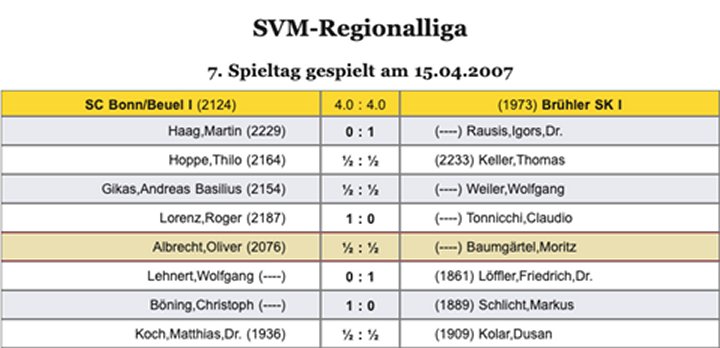
Remembrances of Igors Rausis (Isa Kasimi)
On 28 March 2024, GM Igors Rausis passed away at the age of 62. During his life, he played for many federations and changed his name twice. At the time of his death, he called himself Isa Kasimi. But when I met him in person, he was Igors Rausis, so I’ll use that name in this article.

Igors Rausis | Photo: Wikipedia
Igors Rausis became sadly famous in 2019 when he was caught analysing his game on a mobile phone in the toilet at a tournament in Strasbourg. You can read more details about this in the ChessBase article How to quit chess in one move.
I don’t want to justify or relativise his behaviour in this article. He cheated, was caught and rightly punished. But there was another, very likeable side to him, which in my opinion should not be forgotten. That is why I have recorded my personal encounter with him in this article.
In April 2007, SC Bonn/Beuel played against Brühler SK in the Mittelrhein Regional League. And Igors Rausis played on the first board for Brühl.

Igors Rausis took his team into the lead. I managed to equalise later on board 4. Here is the final phase of my game:
I remember that I was very happy with the game. In my opinion, the position was winning for me after move 43, and I finished the game confidently with good technique.
During the analysis, Igors Rausis joined us and was very surprised that I had won. He had last looked at our board after move 43 and had assumed that the game would end in a draw. I confidently outlined my plans, which I had realised in the game, and stated that the position was simply winning for me. My opponent at the time seemed to share my opinion.
Igors Rausis had a different opinion. To my surprise, he analysed the moves 44.Ra7 Rb4 (instead of 44…Ra1, as played in the game) 45.Rxa5 Kg7 46.Kg5 (46.Ra7+ Kg6) 46…Rb7 47.Kxf4, after which the following position arose:
Here I was flabbergasted. I maintained that this endgame was simply winning by White. Igors Rausis challenged me to prove this against him at the board. And to my surprise, I wasn’t able to cause him any difficulties.
He was very patient with me, explaining the subtleties of the endgame, e.g. that the black king should stay on f7 for as long as possible and that the black rook is often best placed on a1 to attack from both the back and the side. He also told me that Botvinnik was the first to systematically analyse this endgame in the 1950s. It took him almost half an hour to explain this endgame to me.
For me, it was a typical “As every Russian school boy knows, …” moment. In Russia, every schoolboy learns the intricacies of such an endgame at a young age, whereas in Western countries this knowledge is not widespread, even among strong players.
In any case, I was very grateful to Igors Rausis for this very friendly and competent lesson. It affected me all the more when I learnt about his cheating. But I think he deserves to be remembered for his good sides too.
Postscript
I later realised that even very strong players can have difficulties with this endgame. For example, a very young Magnus Carlsen lost the following game against Levon Aronian.
Magnus defended correctly for 20 moves, then made a mistake that granted Black a winning position. But Levon immediately returned the favour, so that Magnus could still have achieved a draw. Unfortunately, he didn’t find the right move and lost the game.
So this endgame isn’t that simple — two luminaries had difficulties with it after all. However, I’m sure that Igors Rausis would have held this game to a draw against Aronian with ease.





